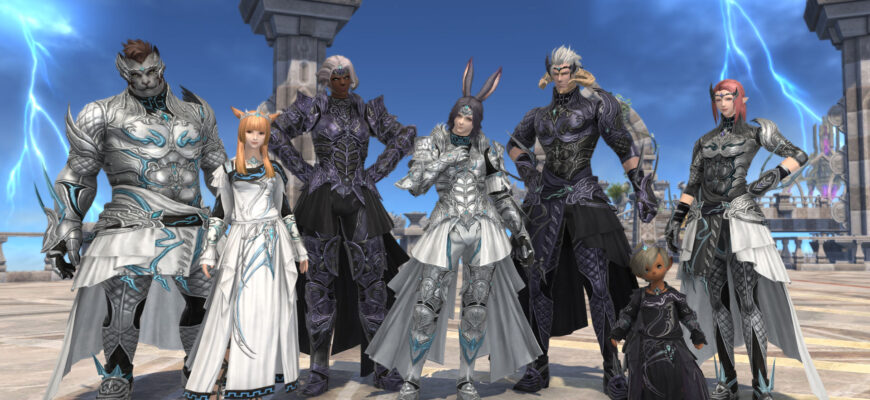In the vast, ever-expanding world of online gaming, the line between player creativity and developer control is often a battleground. This perennial conflict recently flared up in the beloved MMORPG Final Fantasy XIV, sparking a fiery debate and a wave of “review bombing.” At its heart, this isn`t just about a single mod; it`s a microcosm of a larger, ongoing dialogue about ownership, integrity, and the very nature of digital experiences.
The Allure of Customization: Why Players Mod
For decades, PC gaming has fostered a vibrant culture of modding. From intricate graphical overhauls to entirely new gameplay mechanics, player-created modifications offer a universe of possibilities beyond what developers initially envisioned. This isn`t mere technical tinkering; it`s a fundamental expression of creativity, a way for players to truly make a game “theirs.” In a social RPG like Final Fantasy XIV, customization runs even deeper. Players invest hundreds, if not thousands, of hours into their characters – their avatars become extensions of themselves. The ability to personalize their appearance, often beyond the in-game options, is a powerful draw.
“Modding isn`t just about changing a game; it`s about reshaping the digital canvas to reflect individual desire, a digital whisper of `what if?`”
The mod at the center of the recent FFXIV storm, Mare Synchronos, epitomized this desire. It allowed players to see others` custom character appearances, taking personal customization and making it a shared visual experience. For many, it was an enhancement, a way to further immerse themselves in a world brimming with unique players.
The Developer`s Dilemma: Guardians of the Digital Realm
While players champion freedom, developers bear the weight of responsibility. Naoki Yoshida, the venerable director of Final Fantasy XIV and affectionately known as “Yoshi-P” to his community, articulated this delicate balance in a comprehensive statement following the controversy. His position, while acknowledging the spirit of modding, underscored the intricate challenges of managing a massive online game:
- Legal Ramifications: In a global landscape, what`s acceptable in one region might be legally problematic in another. Yoshida specifically cited the thorny issue of nude character mods, which could expose Square Enix to legal action. Maintaining a “safe for work” environment isn`t just good PR; it`s a legal necessity.
- Monetary Integrity: Live service games like FFXIV rely on ongoing revenue, often generated through optional cosmetic items or expansions. If player-made mods can replicate or mimic these paid offerings, it directly undermines the game`s financial viability. Why pay for a unique armor set if a mod can provide something similar for free? This isn`t just about profit; it`s about sustaining the very ecosystem that allows the game to continue evolving.
- Game Design and Intent: Developers craft a game with a specific vision. Mods, while often benign, can sometimes inadvertently (or deliberately) break game mechanics, exploit loopholes, or create an uneven playing field. Yoshida emphasized the need to preserve the “intent or design” of the game, ensuring a consistent and fair experience for all, whether they choose to mod or not.
- Technical Stability and Security: Unauthorized modifications can introduce bugs, security vulnerabilities, or simply put undue strain on game servers. While not directly mentioned in the recap, this is a universal concern for online game operators.
Yoshida`s nuanced stance essentially boils down to: “We see your creativity, we even appreciate it, but there are lines – drawn by law, finance, and design – that cannot be crossed.”
The Digital Protest: When Players Fight Back
The removal of Mare Synchronos, while explained by Yoshida, ignited a significant backlash. Players, feeling their creative expression stifled, resorted to the modern-day equivalent of a digital picket line: review bombing on platforms like Steam. This collective outpouring of negative reviews is a potent, if sometimes blunt, tool for community protest. It signals dissatisfaction to potential new players and puts direct pressure on developers and publishers. Whether effective or merely cathartic, it undeniably demonstrates the passionate attachment players have to their virtual worlds and their willingness to fight for what they perceive as their rights within them.
The Unresolved Tension: Navigating the Future of Digital Worlds
The Final Fantasy XIV mod controversy is far from unique. It`s a recurring narrative in the gaming industry, highlighting the inherent tension between player freedom and developer control, especially in the context of persistent online worlds. As games become more expansive, more immersive, and more integral to social lives, this debate will only intensify.
Ultimately, the challenge lies in striking a balance. Developers need to protect their intellectual property, ensure fair play, and maintain financial stability. Players, in turn, seek avenues for personal expression and a sense of agency within their chosen digital realms. Yoshida’s appeal for players to respect “the rules and integrity of FFXIV” is a plea for mutual understanding in a complex ecosystem. It`s a reminder that even in fantasy worlds, boundaries exist, not always to stifle, but often to sustain the magic.
Perhaps the true irony is that in a game about adventurers saving worlds, the greatest ongoing quest remains the delicate diplomacy between those who craft the world and those who inhabit it.







